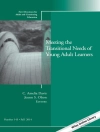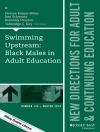This book investigates the higher education system in Germany and China, and analyzes the differences between academic higher education and application-oriented higher education. It explores the past, present, and future of application-oriented higher education in these two countries, and discusses the advantages and disadvantages of this type of education. Using multiple data collection methods across case studies and student questionnaires, it demonstrates the necessity of a dual track higher education system based on separate entrance test and admission system to tertiary-level education, which ensures that students have transitional options. Further, it highlights the improvement of teaching quality and student satisfaction with application-oriented higher education and concludes that the international perspectives from higher education should be considered as one of the most significant methods of educational strategies.
Cuprins
1. Introduction.- 2. Higher Education System in Germany and China.- 3. Conceptual and Theoretical Frameworks for Application-Oriented Higher Education.- 4. Application-Oriented Higher Education in Germany.- 5. Application-Oriented Higher Education in China.- 6. Methodology.- 7. Results: Empirical Analysis.- 8. Concluding Reflections.
Despre autor
Ye Zhang is currently an associate professor at School of International Exchange, Shanghai Polytechnic University, and a Member of several academic associations. She has published widely on comparative education and higher education and undertaken several research projects sponsored by various institutions. She received her Ph.D. degree in Pedagogy from the University of Munich, School of Psychology and Education, Germany.
Xinrong Chen is a professor at Fudan University and a member of several academic associations. His research areas are artificial intelligence and machine learning.












